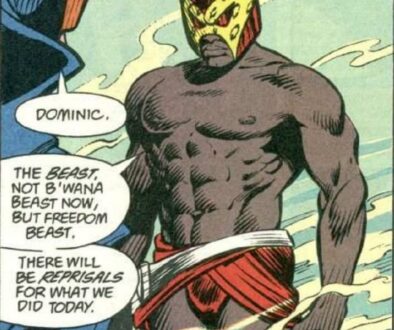“This dread world and the rolling of wheels” -William Blake, The Book of Urizen, 1794
 |
Figure 17: The working class neighborhood of Northampton
Alan Moore grew up in was called The Boroughs |
[previously] Burroughs provides no such easy access route, and is beloved less by the academic consensus than by generations of committed counterculture figures who, like Ballard and Moorcock, “weren’t so much influenced by him as inspired by him.” At times not so much a writer than a stunningly competent criminal, Burroughs effectively hit on the brilliant scheme of supporting a drug habit by writing about it. Famed for shooting his wife to death in an ill-advised drunken William Tell impression, Burroughs’s style is an obvious antecedent for Ballard’s harshly visceral lists in
The Atrocity Exhibition. His masterpiece is
Naked Lunch, an unstructured ramble of a book that was the subject of several landmark obscenity trials, all of which it won. It wanders from misadventure to misadventure, steadily dissolving reality into a paranoid dreamscape that seems to have been Burroughs’s drugfucked experience channeled onto the page, a world where “One Friday Fats siphoned himself into The Plaza, a transulcent-grey foetal monkey, suckers on his little soft, purple-grey hands, and a lamprey disk mouth of cold, grey gristle lined with hollow black erectile teeth, feeling for the scar patterns of junk,” a paragraph that exists as part of a sprawling multi-paragraph sentence with no end in sight.
 |
| Figure 18: Heroin |
Burroughs transitioned this into a literary career such that a reasonable circle of admirers that improbably allowed him to live a heroin-addicted lifestyle until the ripe old age of 83, sustaining a pleasant existence in Lawrence, Kansas where he could have his drugs without the preying cityscape waiting to devour him. But his paranoia was not merely of the perverted rabbit hole of criminal culture that urban drug culture offered him. Rather, he feared the very technology of language, describing it as a “control machine” that was indistinguishable from his own addiction in its tyranny over his thought. This sort of paranoia struck a chord as the technological utopias of the post-World War II era fully gave way to a more unsettled pre-apocalyptic nightmare of nuclear war led human science to become what Iain M. Banks, vanguard of the post-new wave generation of science fiction in the UK, described in 1996 as an Outside Context Problem – something that “most civilizations would encounter just once, and which they tended to encounter rather in the same way a sentence encountered a full stop.” As science became dangerous so did science’s imaginative dimension.
Burroughs, like many figures within and without the war, was overtly an occultist, creating with British performance artist Brion Gysin the cut-up technique, in which written works are physically shredded into strips and remixed to produce new phrases, a practice Burroughs believed to have actual magical import, to the extent that he joined the chaos magic organization the Illuminates of Thanateros late in life. His parallelism with Grant Morrison’s later work is profound enough that it is tempting to suggest him as the real origin for Morrison’s Near Myths stories. But in a 1989 interview Morrison boasts of having “used cut-ups and non-sequiturs before I’d even read a Burroughs book,” specifically pointing to his “unreadable Gideon Stargrave” stories in Near Myths. This suggests that Burroughs provides a sort of deep-lying influence here, filtered through the new wave science fiction writers Morrison was more overtly following from.
This, at least, suggests the tradition in which to position Morrison’s earliest work – a casually eschatological tradition focused on formal experimentalism. But none of this captures the peculiar iconography of Morrison’s comics: the juxtaposing of dandy secret agents and sword and sorcery apocalypses, or the psychedelic Bond pastiche of Gideon Stargrave. Explaining that requires turning to the influence Morrison’s anxiety runs higher regarding, Michael Moorcock.
Moorcock is an oddity of a writer in part because he’s worked in so many genres, or, perhaps more accurately, so many flavors within the basic sci-fi/fantasy genre. For the purposes of talking about Gideon Stargrave, however, it is specifically his Jerry Cornelius series that matters.
 |
Figure 19: The first Jerry Cornelius
book remained vaguely in the realm
of the normal |
Jerry Cornelius is an attempt to do heroic fantasy in the style of The Atrocity Exhibition. Where The Atrocity Exhibition attempted to blur the mediated pornographies of sex and death into one psycho-cultural landscape, the Jerry Cornelius novels switch quickly among narrative frames and worlds, with characters dying and coming back freely and casually. Moorcock admits to the similarity, saying, “just as Ballard found his remedy in the form he used for Atrocity Exhibition and the later stories published from 1965 onwards, I felt I’d found my remedy in the form I used in The Final Programme.” And so Jerry Cornelius adventures through an ever-shifting world. But what’s key is that he adventures – for all the formal complexity of his world, the Jerry Cornelius books feature deceptively straightforward plots.
Moorcock has cited Mike Harrison, a friend within the New Worlds scene who wrote three Jerry Cornelius stories of is own. Harrison, as Moorcock explains it, “said that Jerry was more a technique than a character,” going on to muse that “he’s a narrative device.” In a 2009 interview Moorcock explained that Cornelius “is someone learning to exist, through all kinds of strategies, in our contemporary world,” a character he found useful because he felt like his other writing “was able to deal with the big philosophical issues but not the specifics of modern life,” while he “wanted a character who was able to exist in a lot of different contexts in contemporary cities, especially London.” So Cornelius was a shifting cipher of a character who filled a narrative function in a story that endlessly changed what sort of world it was in.
Moorcock drew attention to this fact by basing the first Cornelius novel, The Final Programme, upon his earliest story with his most famous creation, Elric of Melniboné. “Since Elric was a ‘myth’ character,” Moorcock explains, “I decided to try to write his first stories in twentieth century terms.” This quote comes in an essay towards the end of the collection Elric at the End of Time entitled “New Worlds – Jerry Cornelius,” which contextualizes the Cornelius books in the entire tradition of new wave fiction that Moorcock, as editor of New Worlds, was a central figure in.
But it is in many ways more interesting to approach Cornelius through the character whose story The Final Programme is based off of. Elric of Melniboné is an inversion of the standard sword and sorcery tropes – a scrawny albino with no interest in war partially possessed by his black blade Stormbringer and forced to feed it souls over the course of a weary and tragic journey as a roaming warrior. Like Cornelius, he is as much a narrative structure as anything – Moorcock has always insisted that “I don’t do world-building,” and the stories attracted early letters complaining about the lack of detail in Melniboné’s background and history. Elric is, by Moorcock’s own admission, himself as a late teenager – “angsty, self-blaming, feeling I was doing harm to others around me and so on,” although, in typical Moorcock style, he also cites Charles Maturin’s 1820 gothic novel Melmoth the Wanderer and Bunyan’s Pilgrim’s Progress as inspiration.
 |
Figure 20: Michael Moorcock contributed plotting to the
1972 issue of Conan the Barbarian in which Conan met
his literary inversion Elric of Melniboné, which was written
for Marvel Comics by Roy Thomas. From Conan the
Barbarian #14, 1972 |
The Elric novels are probably Moorcock’s most enduring creation, serving as the centerpiece for Neil Gaiman’s quasi-autobiographical short story “One Life Furnished in Early Moorcock,” which Gaiman describes as “a story about a boy a lot like I was once and his relationship with fiction… when I was twelve, Moorcock’s characters were as real to me as anything else in my life.” Within the story Gaiman describes the Elric tales as “honest. There was nothing going on beneath the surface there. Elric was the etiolated prince of a dead race, burning with self-pity, clutching Stormbringer, his dark-bladed broadsword – a blade which sang for lives, which ate human souls, and which gave their strength to the doomed and weakened albino.”
This was itself a reasonable pastiche of Moorcock’s style in the Elric novels, which were themselves an excited pastiche of the sword and sorcery style epitomized by Robert E. Howard’s Conan the Barbarian stories. “Elric had wound a scarf around the rail and tied the other end to his wrist,” Moorcock writes in the first book. “Dyvim Tvar had used a long belt for the same purpose. But still they were flung in all directions, often losing their footing as the ship bucked this way and that, and every bone in Elric’s body seemed about to crack.”
But this style is markedly different from that of Moorcock’s other major lines. In the Dancers at the End of Time line, for instance, Moorcock told the tales of Jherek Carnelian in the dying days of the universe itself, as it collapses inwards upon itself. Full of time travel and decadence, the Dancers at the End of Time line offers an almost completely different tone. “From the farmhouse came a great banging about,” begins one passage in An Alien Heat, the first Dancers at the End of Time story, “shouts and barkings, and lights appeared downstairs. Mrs. Underwood grabbed Jherek by the sleeve and drew him inside the first building. In the darkness something snorted and stamped. ‘It’s a horse!” said Jherek. ‘They always delight me and I have seen so many now.’”
It is not, crucially, that Moorcock simply maintained a wide variety of franchises and writing styles. Moorcock freely mixed his worlds together, as in the novella Elric at the End of Time, which, as its name suggests, thrusts Elric into the decadent world of Dancers at the End of Time. Its style is giddily parodic of Elric’s at times nonotonous angst. Elric is prone to lengthy cod-epic monologues where he proclaims “I am of older blood, the blood of the Bright Empire itself, the blood of R’lin K’ren A’a which Cran Liretn mocked, not understanding what it was he laughed at” and other such nonsense. And yet at the End of Time such monologues are but curiosities – when he demands to be returned to Melniboné “so that I may fulfill my own doom-laden destiny” another character looks at him “with afectionate delight. ‘Aha! A fellow spirit! I too have a doom-laden destiny.” His gloom giving him no particular credential here, Elric is reduced to muttering, “I doubt it is as doom-laden as mine.”
The intersections of these fictional worlds is governed by an overall system Moorcock calls the Multiverse, which is based around the idea of the Eternal Champion, a figure that exists in all worlds and that all of Moorcock’s protagonists are iterations of. Within the Multiverse the struggle between law and chaos (the latter represented by an eight-point star that, in 1978, was appropriated by Peter J Carroll in Liber Null as the symbol of his newly created system of chaos magick), is endlessly mediated by said Champion, any given manifestation of which is just a facet of the whole. Many, though not all of the incarnations have the initials JC, hence the similarity in names between Dancers at the End of Time’s Jherek Carnelian and Jerry Cornelius.
 |
Figure 21: Text as visual object in
A Cure for Cancer, 1969 |
In many ways Jerry Cornelius is the purest expression of this. As mentioned his first book, The Final Programme, is a relatively straightforward style. But by the second volume, A Cure for Cancer, Moorcock found it necessary to append a reader’s note that notes “this book has an unconventional structure,” and Moorcock is doing things like having an entire chapter entitled “Mystery of Yowling Passenger in Snob Auto” where the majority of the text consists of a man in the backseat of Jerry’s car, the controls of which are “beautifully designed in diamonds, rubies, and sapphires” and “responded with delicate sensuality to his touch,” screaming incoherently. “’Aaaaaaaaaaaahhh! Why? Why? Aaaaaaaaaaaaaaaaaaaaa
aaaaaaaaaaaaaaaaaaaawhyaaaaaaaaaaaaaaaaaaaaaaaaaaaaaa
aaaaaaaaaaaaaaaaaaaaaaaaaaaaaaaaawhyaaaaaaaaaaaaaaaaa
awhyaaa,” one representative passage comments, “whyaaa
aaaaaaaaaaaaaaaaaaaaaaaaaaaaaaaaawhyaaaaaahhhhh! YOU WON’T GET AWAY WITH THIS YOUNG MAN! Yaaaaaaaaaaaaaaaaaaaaaaaaaaaaaaaaaaaaaaaaaaa! You’ll regret thisaaaaaaaaaaaaaaaaaaaaaaaaaaaaaa! WHY! WHY! WHY!,” before continuing “AAAAAAAAAAH! Yaaaaaaaaaaaaaaaaaaaaaaaaaaaaaaaaargh! Yaaaaaaaaaaaaaaaaaaaaaaaaaaaaaaaaaaaaaaaaaaaaaaaaaaaargh! THE AUTHORITIES WILL SOON CATCH UP WITH YOU, MY FRIEND!,” and concluding “OOOOOOOOOOOOOOOOOOOOOOOOOOOOOO OOOOOOOOH. URSH! YAROOOOOOOOOOOOOOOOOOOO! I SAY, STOP IT, YOU ROTTERS! OOOOOOCH! GAARR,” at which point Jerry inserts a comment, setting off another round in which the character’s screams of “AAAAAAAAAA” are typographically arranged so that the As themselves form larger letters A on the page.
The Cornelius books are characterized by large quantities of philosophical dialogue in amidst the action set pieces, which often fade towards the background. A few chapters after the yowling passenger Cornelius recalls a conversation where “a girl had once asked him, stroking the muscles of his stomach, ‘what do you achieve by the destruction of the odd library? There are so many. How much can one man do?’ ‘What he can,’ Cornelius had told her, rolling on her. ‘It’s History that’s caused all the trouble in the past.’” Moorcock has commented that the Cornelius books are populated by “characters who are aware of the psychological implications of their statements and actions. That is they are as aware of the unconscious as the conscious.
[continued]










July 4, 2013 @ 12:19 am
‘It’s History that’s caused all the trouble in the past.
Have you read Ken MacLeod's "Surface of Last Scattering"? It's a fantastic dramatisation of the critique of logocentrism, concerning a virus designed to destroy all the paper in the world to free us from the tyranny of original sources.
July 4, 2013 @ 1:05 am
"But in a 1989 interview Morrison boasts of having “used cut-ups and non-sequiturs before I’d even read a Burroughs book,” specifically pointing to his “unreadable Gideon Stargrave” stories in Near Myths. This suggests that Burroughs provides a sort of deep-lying influence here, filtered through the new wave science fiction writers Morrison was more overtly following from."
I'd also say that David Bowie, who admired Burroughs and also used his cut-up technique, was another strong influence here (as revealed by Bowie in the BBC "Cracked Actor" documentary from 1974, which I feel both Moore and a young Morrison couldn't have helped but watch).
Another big influence on Morrison and Moore that should not be underestimated is the film maker Nic Roeg, most famously referenced by Moore in Ozymandias' multiple tv screens in Watchmen. He too used a cut-up technique, but in his case via editing.
The cut-up sequence is itself surely an offshoot of Joyce, which, with his psycheography of Dublin can't help but be an influence on Moore and his obsession with Northampton, and to a lesser extent Morrison and his relationship with Glasgow.
And I imagine you'll be getting to the writings of Robert Anton Wilson (didn't he create the term "fiction suit?") and the profound influence of Bryan Talbot's Luther Arkwright (which in turn was, as admitted by its author, inspired by Roeg, Wilson and Moorcock's work). Which leads us back to the start.
Fascinating series so far. For myself, both authors have affected me one way or another: I grew up along side Moore's work, having started reading him unknowingly via "The Stars My Degradation" in my older brother's Sounds music paper, and following him from Doctor Who Weekly to 2000ad to Warrior to DC Comics. I doubt I would have continued reading comics beyond early adolescence if not for Alan Moore. Morrison, meanwhile, is someone I know of tangentially owing to my friendship with one of his ex-girlfriends (who in my opinion was the basis for the female protagonist in "Kill Your Boyfriend).
I used to prefer Moore's writing to Morrison's, but as I've got older, I find myself enjoying Morrison's more (I originally typed that as Moore, which was a nice Freudian slip– oddly enough, I also typed Jung instead of young earlier!).
July 4, 2013 @ 1:20 am
Point of correction: as well as his sf/fantasy work, Moorcock has written a quartet of literary historical fiction.
The other obvious influence on Elric is Poul Anderson's The Broken Sword. (I believe Moorcock's credited that.) Law vs Chaos I think comes out of Three Hearts and Three Lions. Anderson of course sides firmly with Law, while Moorcock is ambivalent.
What Moorcock does to sword and sorcery, not only in Elric but also in Hawkmoon and Corum, is introduce left-wing anarchism and also fin de siecle decadence. Sword and Sorcery looks as if it oughtn't to fit with decadence, but I think you can trace them both back to Edgar Allan Poe. The Elric stories are more decadent; the Corum sequence is more obviously anarchist. The Corum series end up with what I think is the first total deconstruction of the sword and sorcery hero: you can see its influence on Alan Moore's proposal to DC for a Twilight of the Superheroes and especially on Russell Davies' Second Coming.
July 4, 2013 @ 1:33 am
I'd never heard of Gaiman's "One Life Furnished in Early Moorcock". I've just located it and read it. OMG it's me.
July 4, 2013 @ 4:37 am
Also just discovered that Gaiman piece through this blog. Thanks Phil. It's an evocative read and has made me realise (doh!) just what a debt the character Morpheus owes to Elric. I'm going to try and not comment more about 'The Last War in Albion' itself until I've read it in its entirety; its 'to be continued' nature presents the trap (I've already fallen into)of not knowing what will or won't be covered. Can I just say though that I feel the most successful expression of Morrison's Moorcock inspiration remains his work on DCs '52' and 'Final Crisis' where he takes the Multiverse and mashes it up with DC comics' own parallel Earths. Moore, on the other hand, while he has gestured toward Elric, Cornelius and multiple Earths in his work (particularly LOEG and Tom Strong) has not, to my knowledge, utilised Moorcock's concepts directly.
July 4, 2013 @ 5:05 am
This comment has been removed by the author.
July 4, 2013 @ 5:08 am
Spacewarp – I had a similar feeling when I first read it 🙂
July 4, 2013 @ 6:33 am
The trouble is, I'm intending to us that "to be continued" structure indefinitely. The chunk of entries I've written ends on a "to be continued." So I hope you'll keep commenting, and that guessing where I'm going next will become a sort of parlor game for the commenters.
July 4, 2013 @ 6:34 am
And Carey wins the "guess what gets brought up in the next entry" game.
Well, with one of his two big guesses. The other will get covered eventually. I'm hardly going to blow through all my history in the intro, after all. 🙂
July 4, 2013 @ 6:38 am
It was the first Gaiman story I read. At Age 13. While my life was being furnished by early Moorcock. At the time, I could not understand why it made me uncomfortable. It was eerie the way it seemed to describe my existence. Lacking the narrative understanding and self knowledge needed to analyze it, I grew to dislike it intensely. Now of course I look at the story quite fondly. At the time I was kind of frustrated that it was in my anthology of Elric anthology that I had to save up for over a month of working at my Grandfathers every weekend.
I hope that when I give it to my children they will experience the same dissonance. Growing up is more interesting when your understanding of your place is in question.
July 4, 2013 @ 8:11 am
Okay then, gauntlet thrown and accepted. I'm guessing you may touch on Phil Hine's Chaos Magic books and sigil working in general, take a detour into the Illuminatus trilogy and look at Nicholas Roeg and Donald Camell's film work particularly 'Performance', 'Don't Look Now' 'Insignificance' and 'The Man Who Fell to Earth' which are particularly Moorcockian in their use of fragmented and multiple time frames. I hope you can track down the 1971 movie of 'The Final Programme' to watch as well. It's interesting to view Jon Finch's portrayal of Cornelius as a way the Pertwee era Doctor might have been played. On a similar note I'm more and more seeing Matt Smith as a perfect casting for Jherek Carnelian in the unlikely event anyone decides to do an adaptation of 'Dancers at the End of Time'. Can't you just see him and Jenna Coleman playing the scene you quote? –
“… Mrs. Underwood grabbed Jherek by the sleeve and drew him inside the first building. In the darkness something snorted and stamped. ‘It’s a horse!” said Jherek. ‘They always delight me and I have seen so many now.’”
July 4, 2013 @ 9:14 am
Do you mean the Colonel Pyat quartet? Because from what I recall, they struck me as a form of historic fantasy without overtly fantastic elements, if that makes any sense. I'm pretty sure they're part of the Multiverse, in any event.
July 4, 2013 @ 12:39 pm
Anderson of course sides firmly with Law, while Moorcock is ambivalent.
In the high-fantasy works like Elric and Corum, it's usually chaos that is the (more) bad guy; in the more contemporary works like Blood it's usually law that's (more) the bad guy.
I'm pretty sure they're part of the Multiverse, in any event.
The Colonel Pyat books and the Cornelius books share some characters in common (including Jerry's mom, and Colonel Pyat himself).
There's also The Brothel in Rosenstrasse, which is likewise "historic fantasy without overtly fantastic elements" but also systematically parallels the fantasy City in the Autumn Stars.
July 4, 2013 @ 12:41 pm
Hmm, that's interesting. I accidentally submitted the last comment after entering only the text captcha, not the number captcha as well — but it accepted it anyway!
July 4, 2013 @ 12:44 pm
I'm more and more seeing Matt Smith as a perfect casting for Jherek Carnelian
Oh my god. Yes.
July 4, 2013 @ 1:07 pm
"Dempster Dingbunger is my name, Sputwang is my nation, The depths of space gob in my face… The stars my degradation!"
Didn't that strip also give us Axel Pressbutton?
Ah…Sounds, a much-lamented loss to the music press.
July 4, 2013 @ 1:10 pm
In fact, my God, they're all here:
http://www.4colorheroes.com/alan_moore_sounds.html
July 4, 2013 @ 1:12 pm
I know. It's going to make life so much easier when I get there. Though I have to figure out what came first, Roscoe Moscow or Maxwell the Magic Cat. Which shouldn't actually be hard, I just need to actually look it up.
July 4, 2013 @ 3:01 pm
Am I the only regular here who has read way more Burroughs than Moorcock? A Cure for Cancer was the first experimental novel I ever read, way back in the sixth grade, so I suppose Moorcock did set me on the path; but Burroughs' books (and his recordings) had much more of an impact on me.
July 4, 2013 @ 11:18 pm
Hmm, I might have read more Edgar Rice Burroughs than Moorcock — it'd be a close call though.
February 13, 2015 @ 5:50 am
Aaah! Gutted that I did not get around to reading this blog live when it came out, as key works here are being covered that heavily inspired me when I was a teen (and they still do). I'll catch up anyways and look forwards to where it goes in the future.